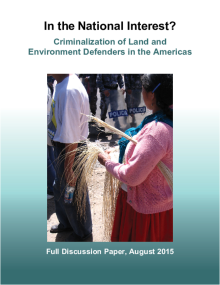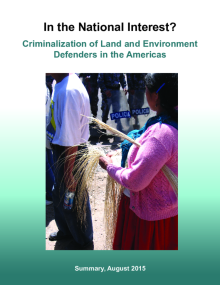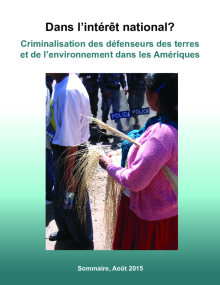Too Much To Ask? Put mining justice on the foreign policy leaders’ debate
Among questions about the Syrian refugee crisis and Canada’s military deployment abroad, the central role of the Canadian mining industry in the dispossession and forced displacement of many thousands of people around the world, including countless men, women, and children murdered, wounded, and raped, deserves serious attention when Harper, Trudeau and Mulcair head into the Munk Debate on Canada’s Foreign Policy in Toronto this Monday.


